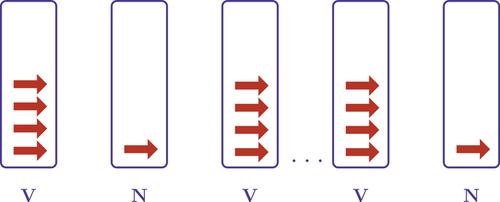叛军能力、情报收集和作战策略
摘要
反叛战争的经典和现代理论都强调资源禀赋的作用。我们证明,由于捐赠,情报收集在确定叛军如何对装备更好的政府军发动复杂袭击的细节方面发挥着关键作用。我们使用关于阿富汗叛军袭击、叛军领导的间谍网络和反叛乱行动的高度详细的数据来测试理论模型的含义。利用鸦片适宜性的准随机变化,我们发现,叛乱分子能力的提高与以下因素有关:(1)额外的反监视,(2)增加叛乱分子的行动,(3)通过技术创新、增加复杂性和攻击集群改进战场战术,以及(4)提高对安全部队的有效性,尤其是对更硬目标的有效性。这些结果表明,获得资本,再加上情报收集,对叛乱分子的战斗方式和地点产生了重大影响。*我们感谢Karen Alter、Christopher Blair、Luke Condra、Peter Deffebach、Quy Toan Do、Kai Gehring、Garance Genicot、Michael Gilligan、Matthew Gudgeon、Amanda Kennard、Susan Hyde、Michael Kofoed、Daniel Krcmaric、Dorothy Kronick、Sarah Langlotz、Francois Libois、Nicola Limodio、Andrew Little、John Loeser、David Mansfield、Luis Martinez、Aila Matanock、Micheala Mattes,Marc Meredith、Gerard Padroı́Miguel、Owen Ozier、Kyle Pizzey、Michael Povilus、Robert Powell、Martin Ravallion、Peter Rosendorff、Arturas Rozenas、Mehdi Shadmehr、Alexander Stephenson、David Van Dijcke、Oliver Vanden Eynde、Juan Vargas、Duncan Walker、Alex Weisiger、Liam Wren Lewis、Andrew Zeitlin和Yuri Zhukov以及哥伦比亚大学、乔治城大学的研讨会参与者,纽约大学、西北大学、加州大学伯克利分校、宾夕法尼亚大学和世界银行研究小组。美国军事学院(西点军校)的教员提供了异常详细的反馈。本材料部分基于皮尔逊全球冲突研究与解决研究所支持的工作。我们感谢Jarnickae Wilson对本文早期版本的重要贡献。Eli Berman、Ethan Bueno de Mesquita和Jacob Shapiro特别感谢他们对这一项目和相关项目的支持。马,郭,拉娜库格利,梁,玛丽亚·米洛什,约纳坦·利特温,保罗·索尔蒂斯和朱利安·沃提供了出色的研究协助。所有错误都属于我们自己。攻击[敌人]没有准备的地方,出现在你意想不到的地方。孙子,《兵法》,五分。BC

Classic and modern theories of rebel warfare emphasize the role of resource endowments. We demonstrate that intelligence gathering, made possible by these endowments, plays a critical role in determining specifics of how rebels launch complex attacks against better equipped government forces. We test implications of a theoretical model using highly detailed data about Afghan rebel attacks, insurgent-led spy networks, and counterinsurgent operations. Leveraging quasi-random variation in opium suitability, we find that improved rebel capacity is associated with (1) increased insurgent operations; (2) improved battlefield tactics through technological innovation, increased complexity, and attack clustering; and (3) increased effectiveness against security forces, especially harder targets. These results show that access to capital, coupled with intelligence gathering, meaningfully impacts how and where rebels fight.

 求助内容:
求助内容: 应助结果提醒方式:
应助结果提醒方式:


